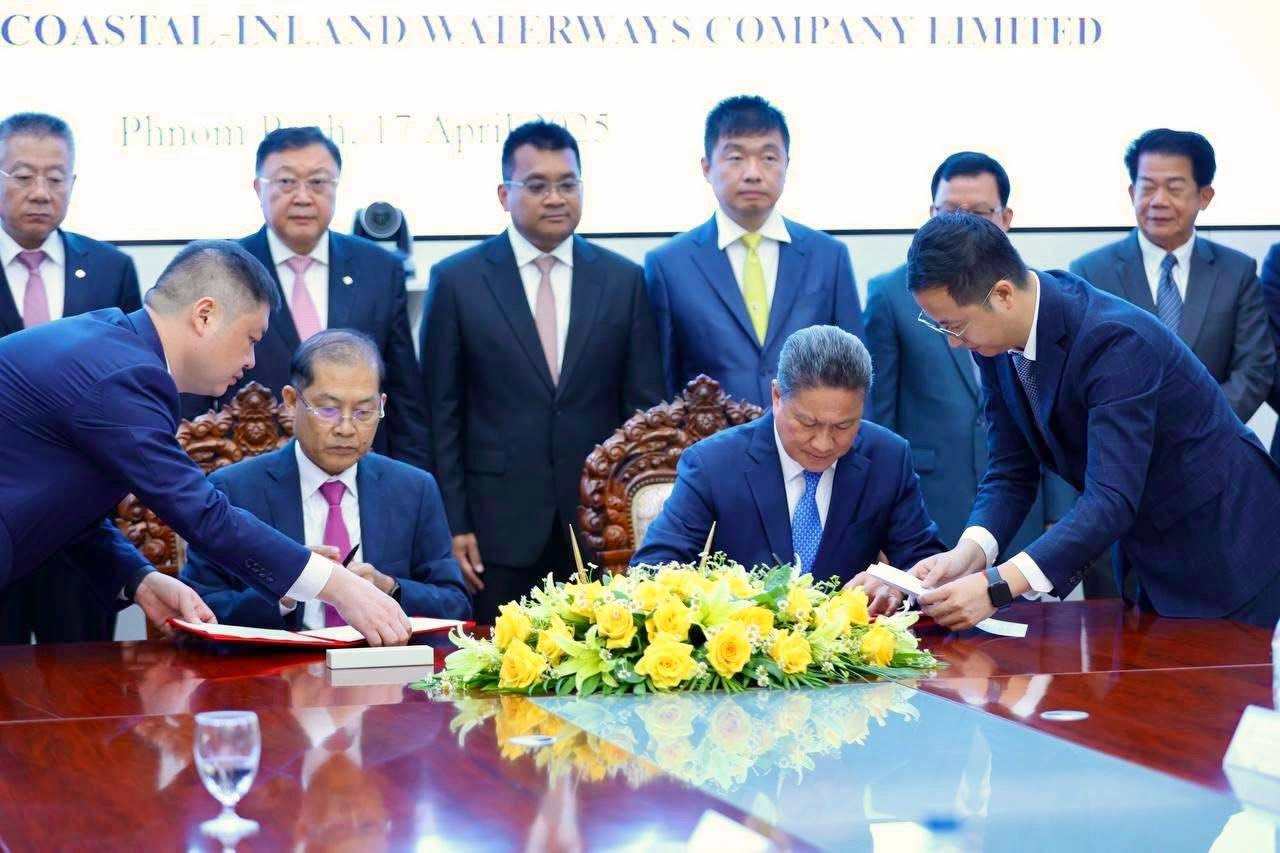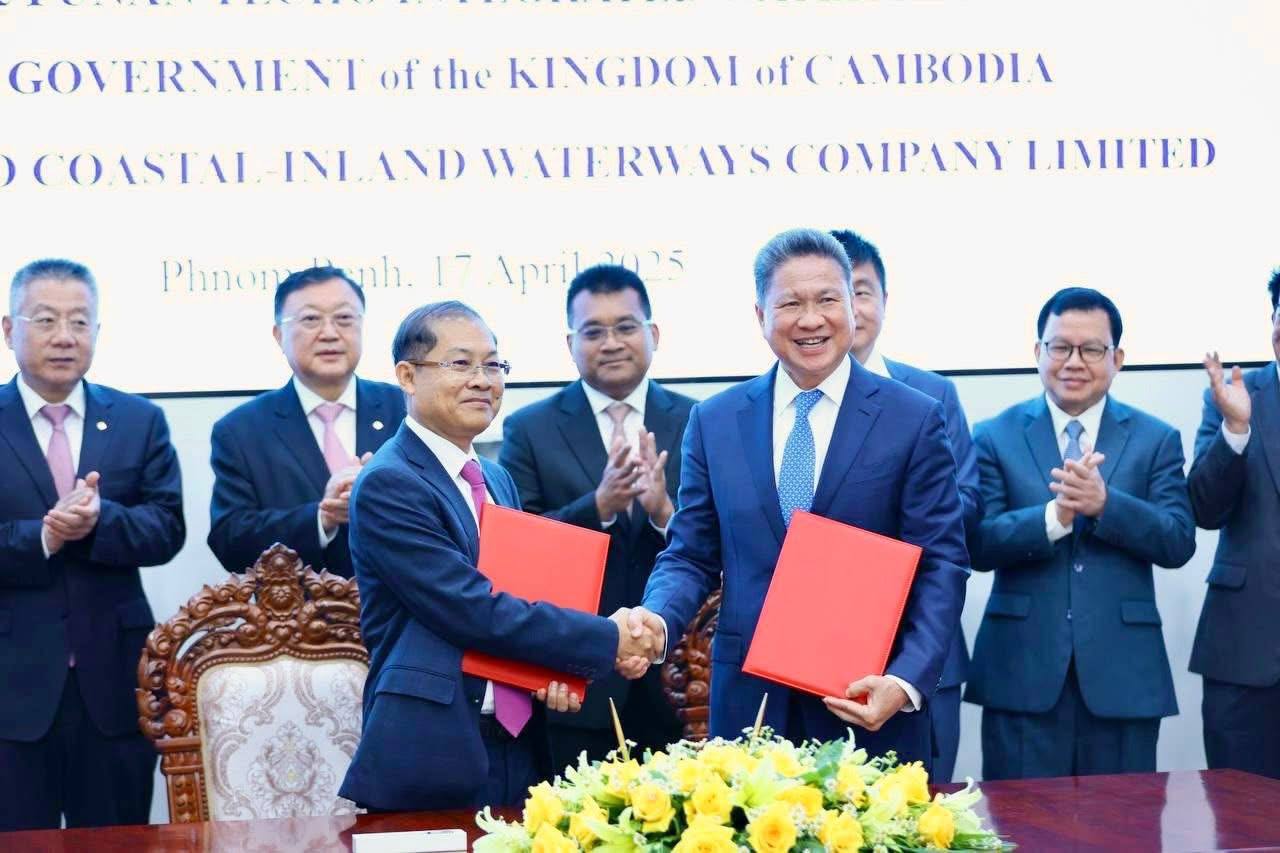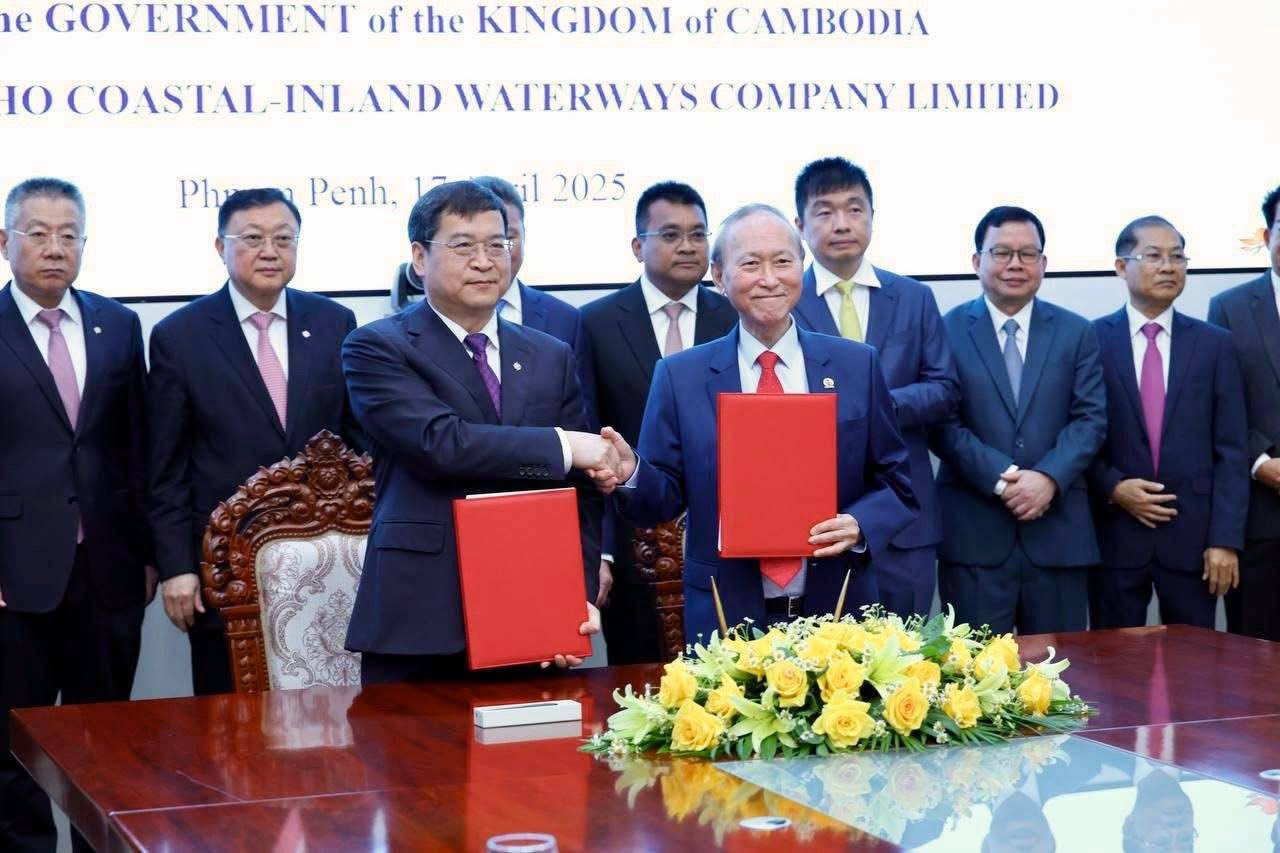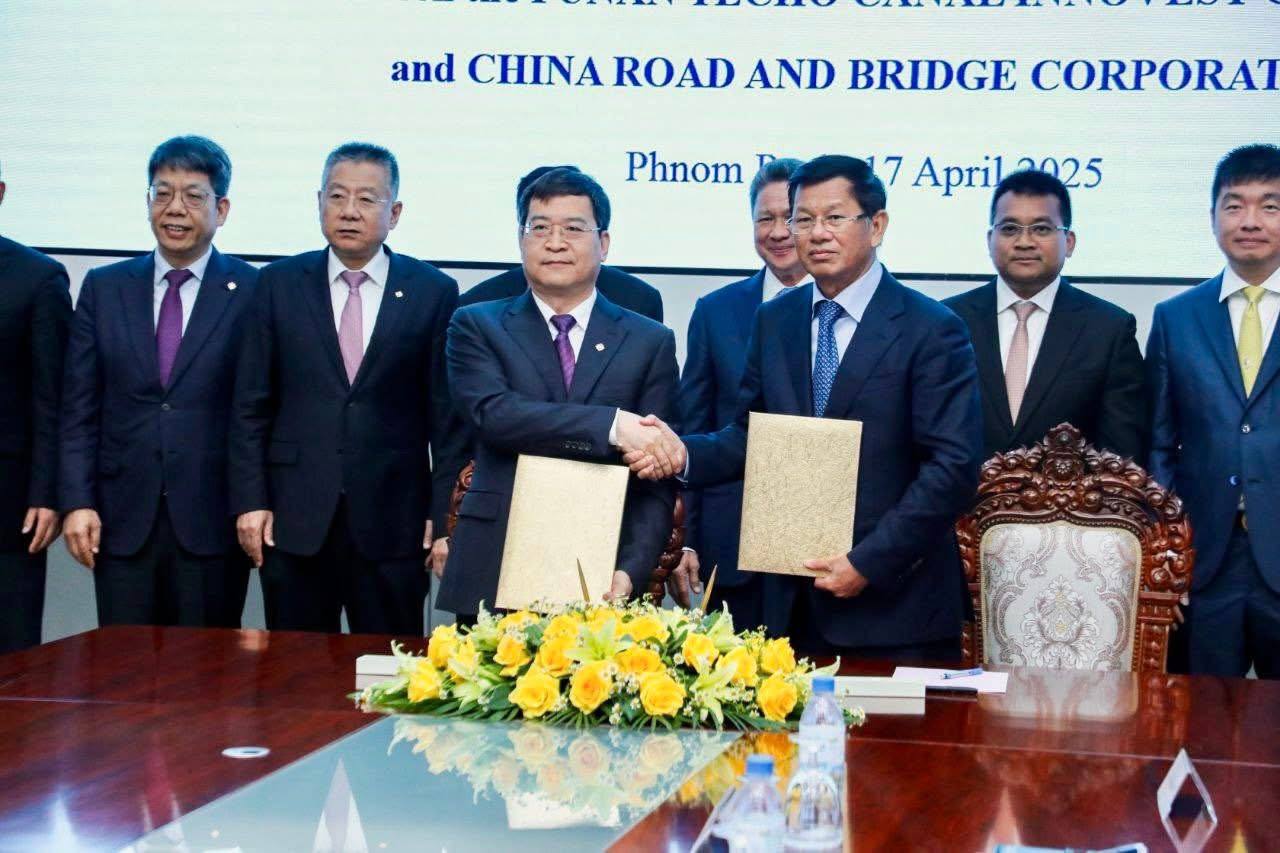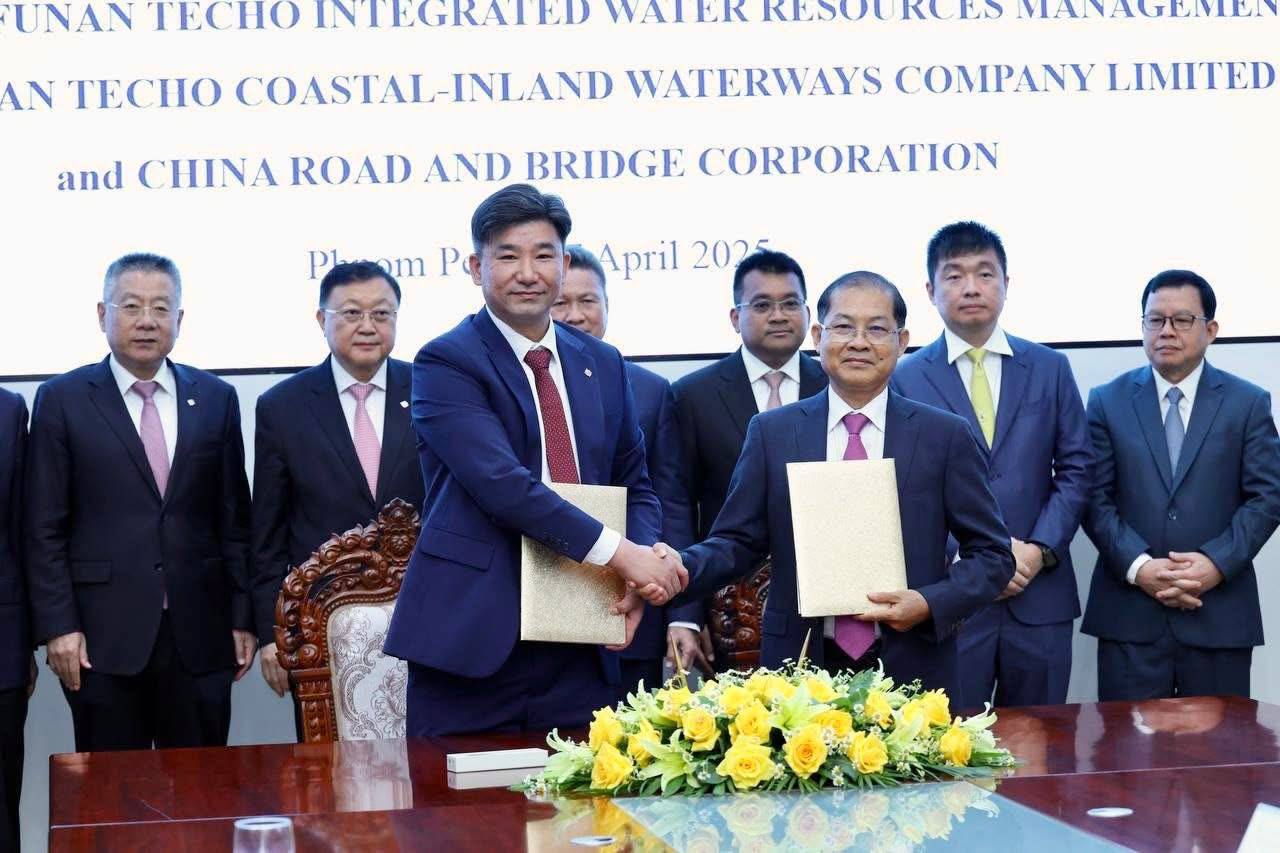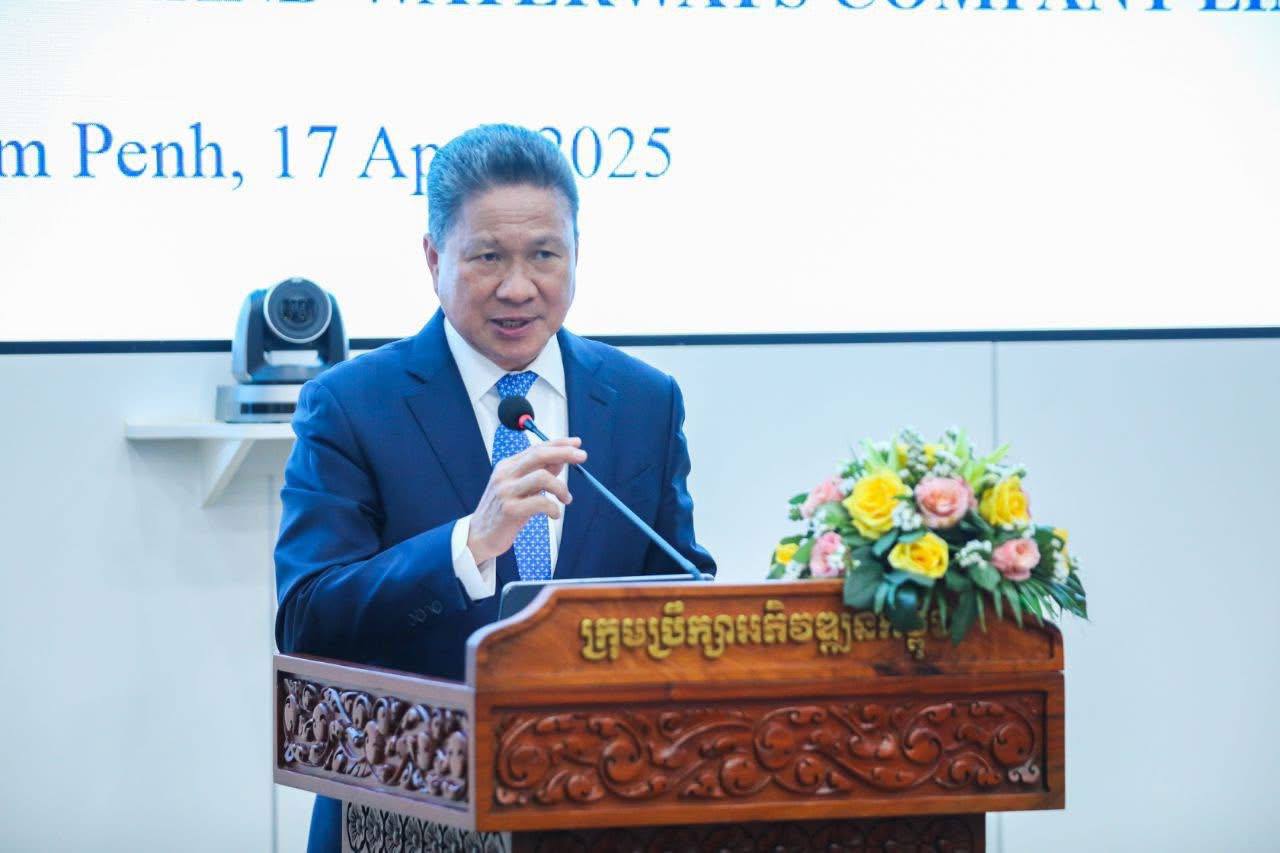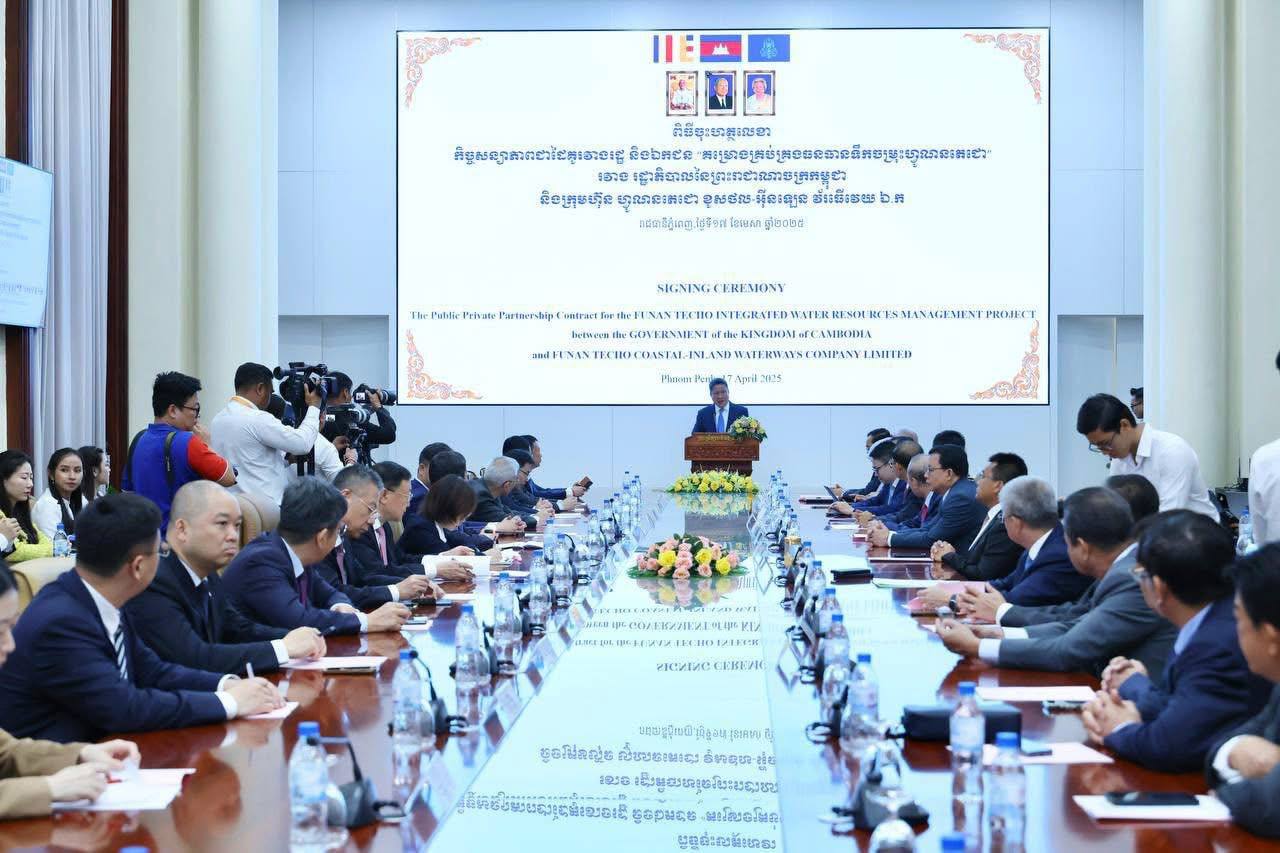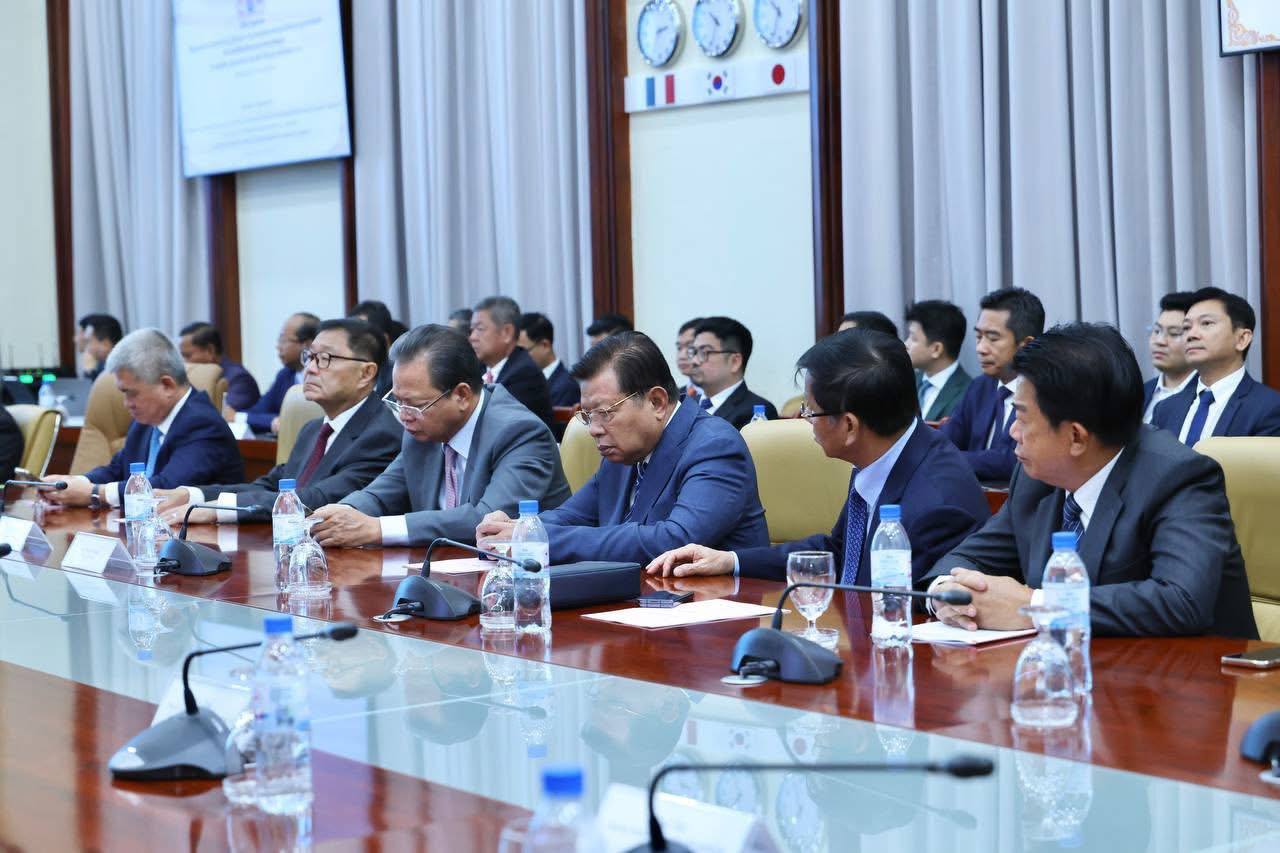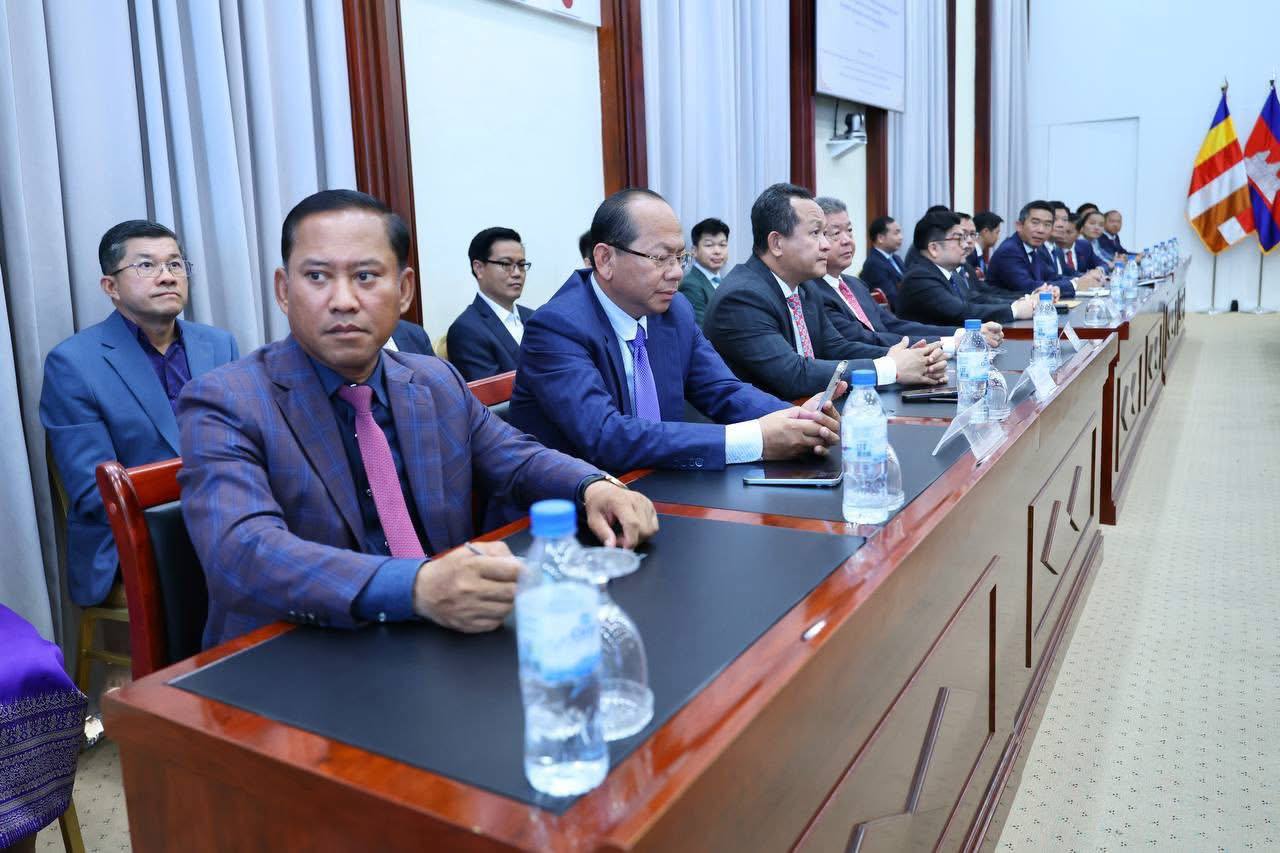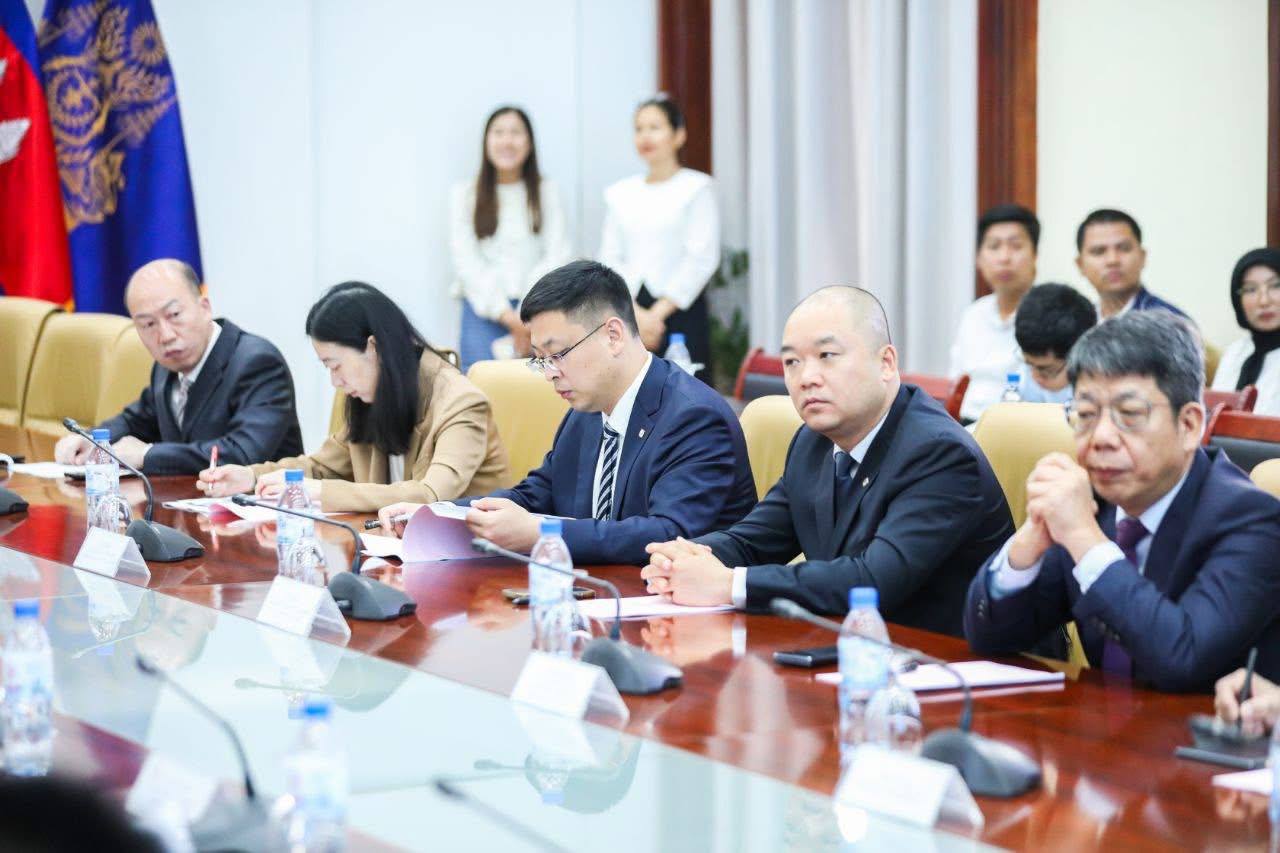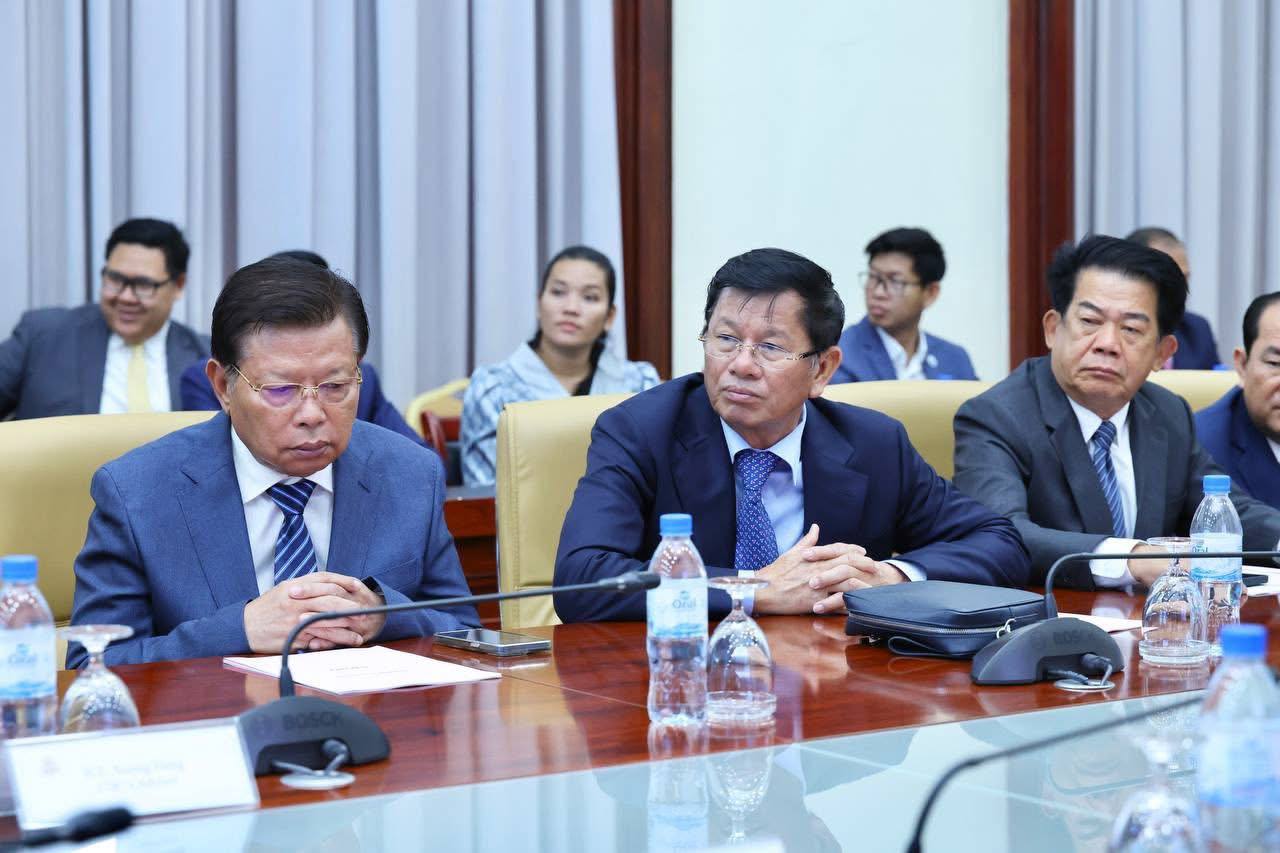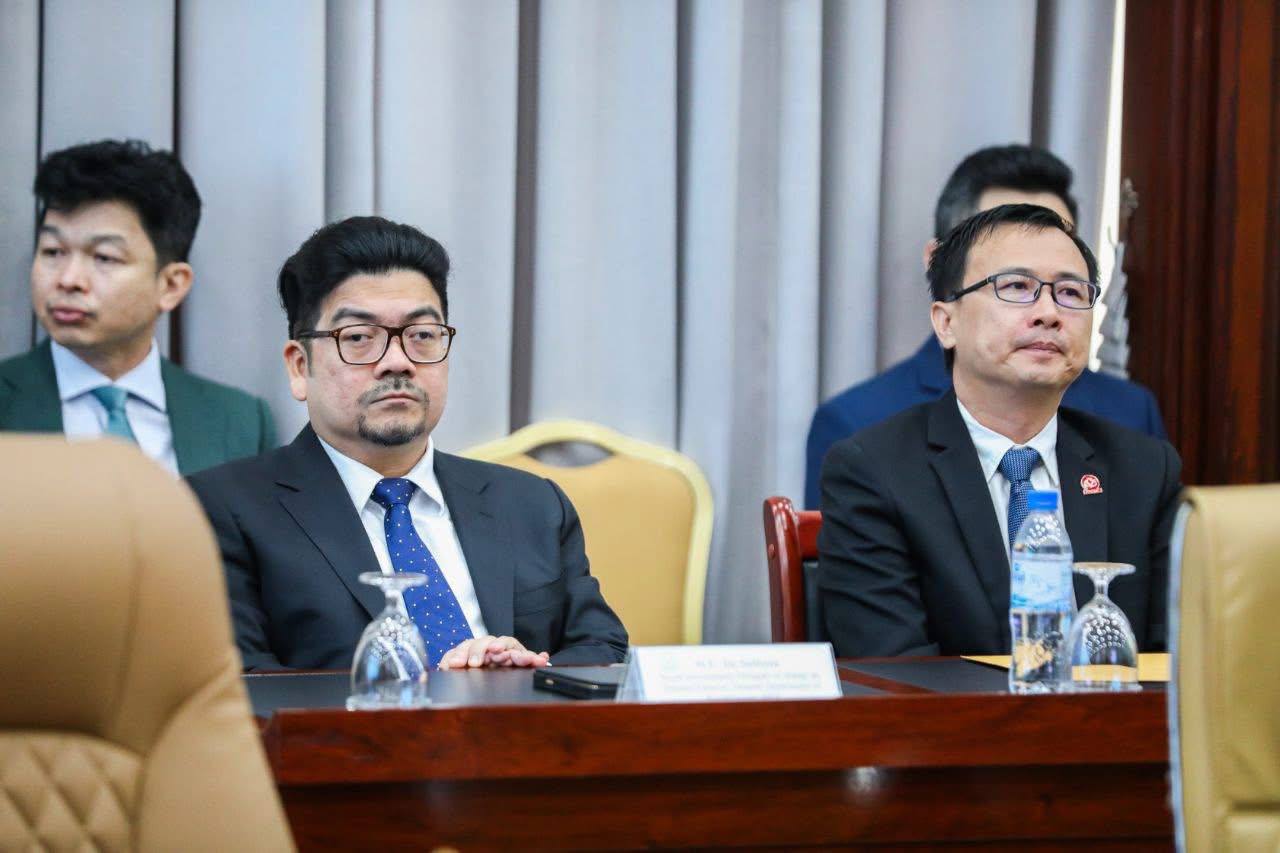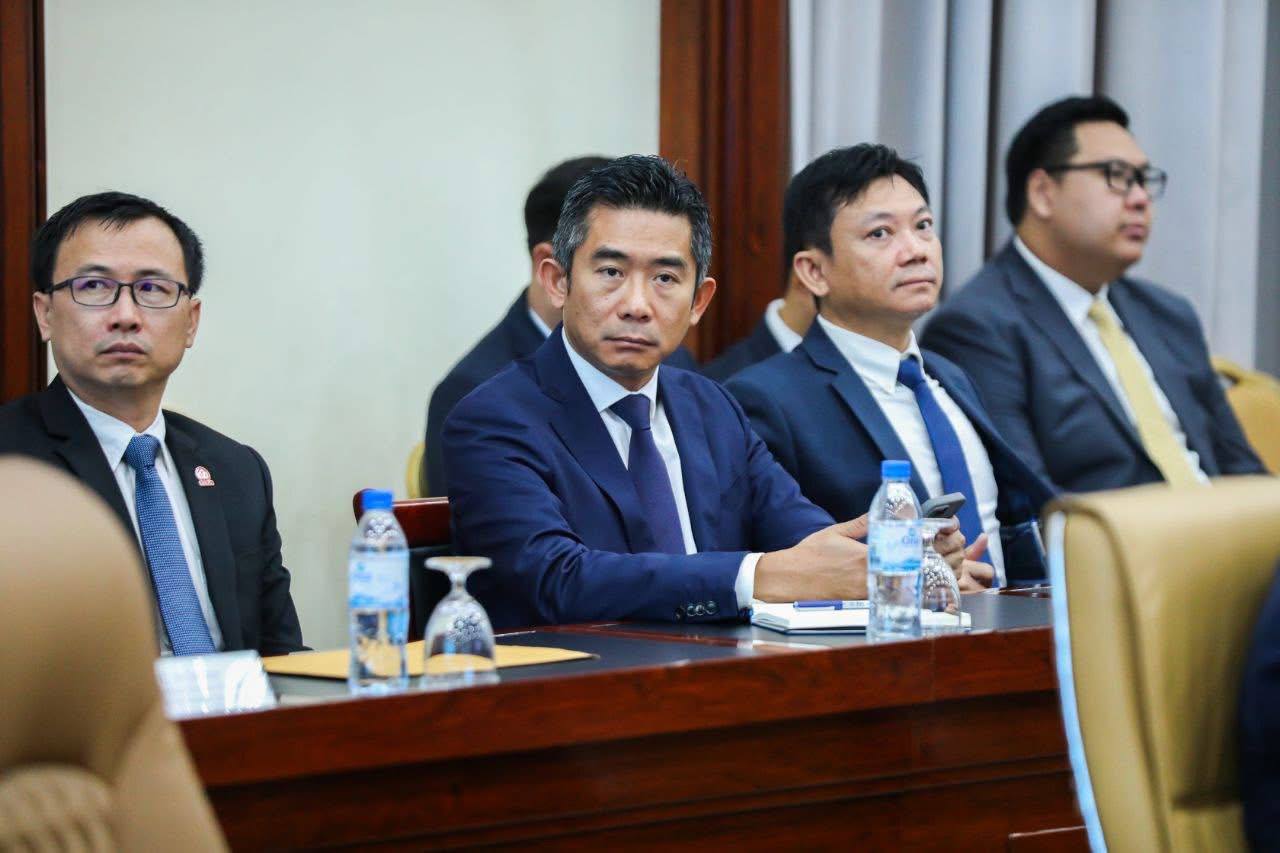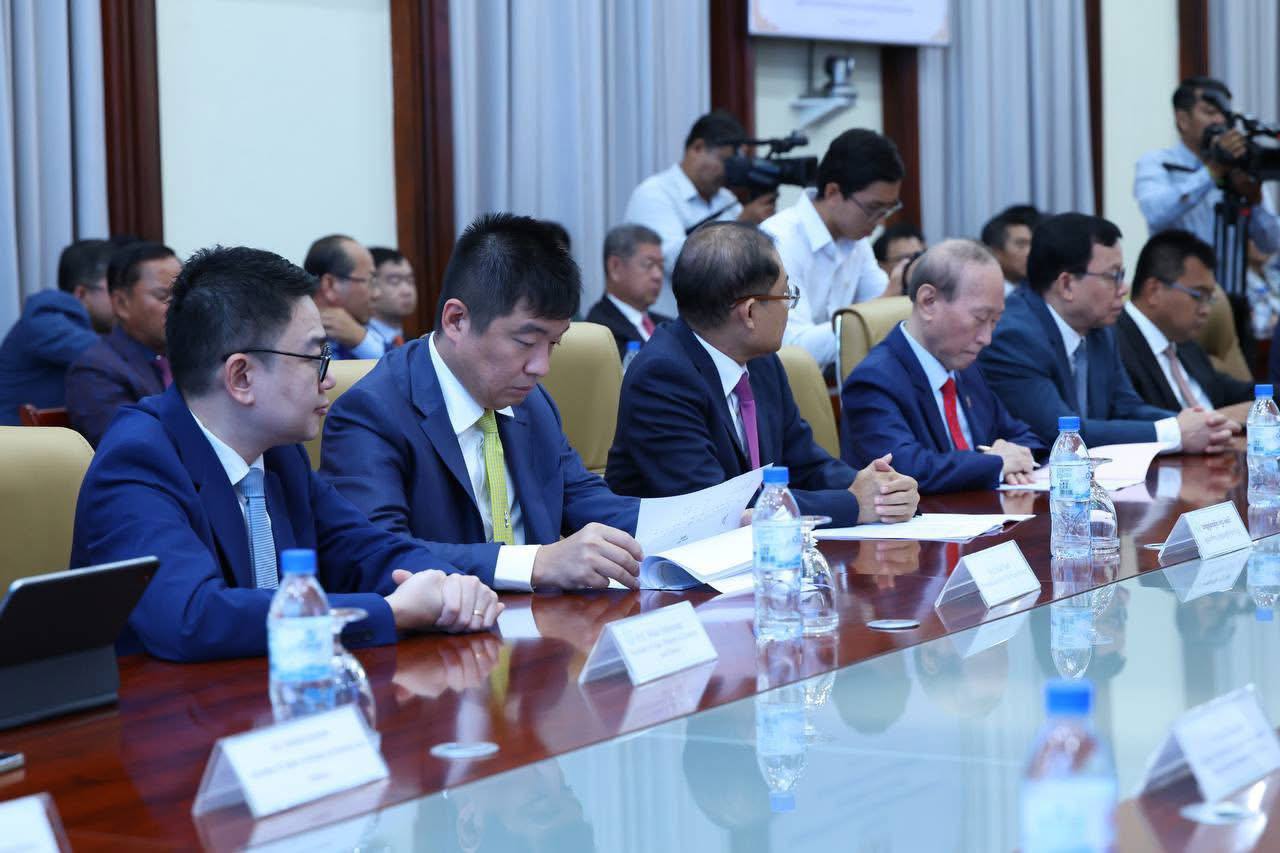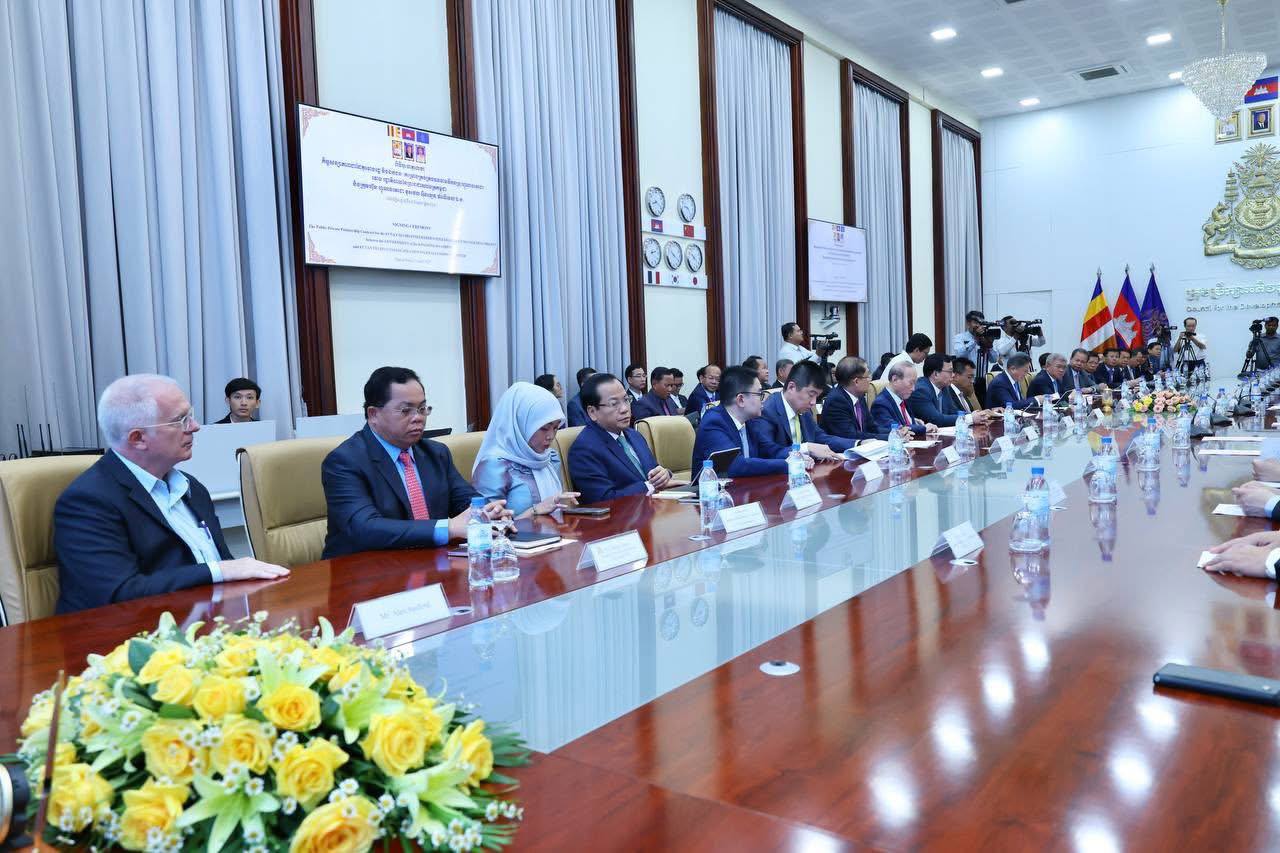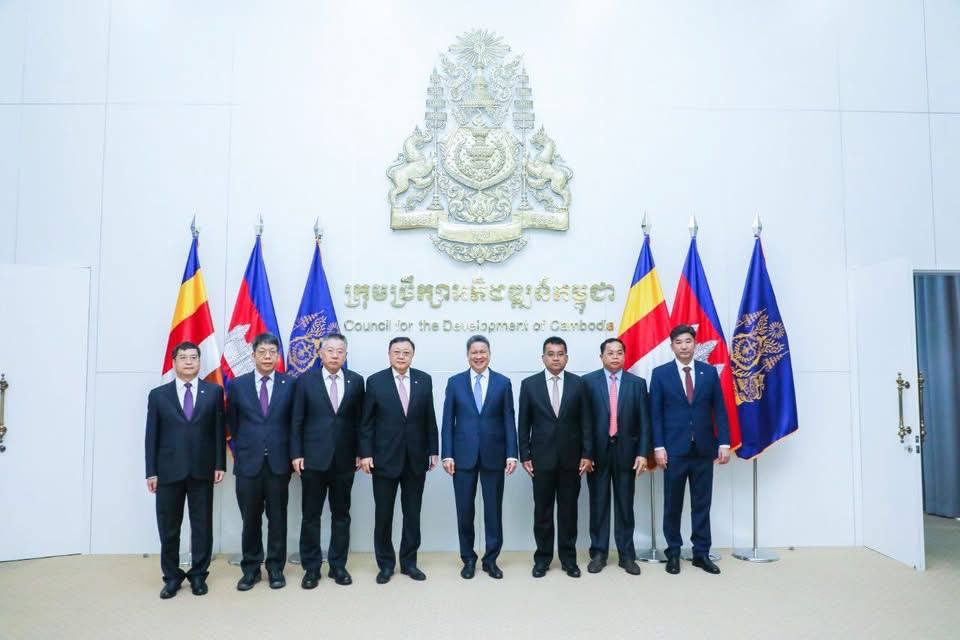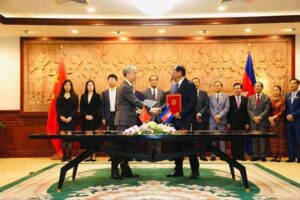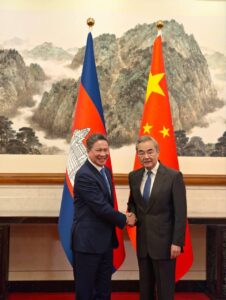Cambodia and China Sign Landmark Agreement for $ 1.156 billion Funan Techo Canal Project
Historic partnership launched during President Xi of China’s visit to the Kingdom
PHNOM PENH, APRIL 18, 2025: The Government of the Kingdom of Cambodia yesterday signed a historic Public-Private Partnership (PPP) contract with Funan Techo Coastal – Inland Waterways Company Ltd for the development of the Funan Techo Canal — a transformative $ 1.156 billion infrastructure project that will modernize Cambodia’s water transport system, enhance economic independence, and strengthen regional connectivity.
The signing took place during the State Visit to Cambodia by President Xi Jinping of the People’s Republic of China, reflecting the high-level consensus reached between President Xi, Senate President Samdech Hun Sen and Prime Minister Samdech Hun Manet.
The agreement was signed in the presence of H.E. Sun Chanthol, Deputy Prime Minister and First Vice-Chairman of the Council for the Development of Cambodia (CDC), and Mr. Wang Tongzhou, Chairman of
China Communications Construction Company (CCCC). The PPP Contract was signed on behalf of the Government of the Kingdom of Cambodia by Deputy Prime Minister H.E. Sun Chanthol, and on behalf of the Project Company by its representative, H.E. Ieng Sunly.
Stretching 151.6 kilometers from the Bassac River near Phnom Penh to the coastal province of Kep, the canal will create a new inland waterway-maritime corridor capable of handling vessels up to 3,000 deadweight tons (DWT). The project will involve canal excavation, construction of ship locks and supporting navigation and logistics infrastructure.
Thursday’s ceremony also marked the signing of other key legal documents, including the Shareholder Agreement, Investment Agreement, Engineering-Procurement-Construction (EPC) Contract, and the Operation and Maintenance (O&M) Agreement, formalizing the full framework for project execution and
long-term cooperation.
“This is an ambitious engineering undertaking, but also a strategic enabler for transportation and connectivity, trade, agriculture, water management, climate change resilience, tourism, and national logistics,” said H.E. Sun Chanthol. “It is a modern revival of a historic route — a powerful link between our
Cambodian past and future.”
“Let this canal serve as a lasting symbol of what can be achieved when nations cooperate in good faith, when vision is backed by action, and when the public and private sectors come together in the service of the people,” he added.
Mr. Wang Tongzhou, Chairman of CCCC, said “As an inland waterway and important transport infrastructure in Cambodia, the FTC Project will become a new engine driving national economic growth. After completion, it will significantly reduce the comprehensive logistics costs in Cambodia, and promote Cambodia’s industry to the middle-to-high end of the value chain.”
Commercial Structure and National Ownership
The project is being developed under a Build-Operate-Transfer (BOT) model in accordance with Cambodia’s PPP Law. Cambodian investors hold a 51% equity stake, ensuring majority national ownership, while Chinese investors hold 49%. The project company includes Cambodia’s Overseas Cambodia Investment Corporation (OCIC), Phnom Penh Autonomous Port, and Sihanoukville Autonomous Port, alongside China Road and Bridge Corporation (CRBC). The project also forms part of the Cambodia–China “Diamond Hexagon” cooperation framework and reflects high-level consensus between the two countries.
Economic Independence and Growth
The canal is expected to:
- Create up to 50,000 direct and indirect jobs in Cambodia;
- Significantly reduce logistics costs and shorten trade routes;
- Boost agricultural productivity, expand irrigation, and improve access to international markets;
- Stimulate tourism and industrial development along the route;
- Reduce reliance on foreign country ports;
- Modal shifting of heavy transportation from road to waterway and reduce the O&M costs of
annual road maintenance; - Reinforce Cambodia’s role as a logistics hub in ASEAN and RCEP; and
- Enable integration across agriculture, logistics, and industry to drive inclusive economic growth.
The canal will help establish a modern inland waterway network that addresses current infrastructure gaps, expands shipping alternatives, enhances waterborne transport safety, and reduces the carbon footprint of national logistics.
Environmental and Social Responsibility
A rigorous Environmental Impact Assessment, conducted by 48 specialists, confirmed minimal environmental impact. There are no national nature reserves along the route.
The Cambodian government has led efforts to minimize resettlement, with a route designed to avoid dense communities and cultural sites. A responsible compensation and consultation process is underway.
Civilian Use and Legal Compliance
The canal is a civilian infrastructure project, strictly governed by Cambodian law. The project also aligns with the 1995 Mekong Agreement and is fully compliant with Mekong River Commission (MRC) relevant procedures. The canal will transform Cambodia’s logistics and water management systems, reinforce regional trade integration, reduce risks of natural disaster, enhance climate resilience and contribute to the long-term, sustainable development of Cambodia.
For more information: visit: www.funantechocanal.gov.kh | Email: media@funantechocanal.gov.kh
